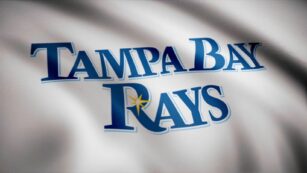Baseball fans live for the thrill of the World Series, but not every team has tasted victory. While some franchises boast multiple championships, others have yet to experience that elusive triumph. This disparity adds an intriguing layer to the sport’s rich history. Understanding which teams have never won the World Series can provide insight into the challenges and dynamics of Major League Baseball. It also highlights the perseverance and hope that drives these teams and their loyal fan bases year after year.
What Teams Have Never Won The World Series
 Some Major League Baseball (MLB) teams have yet to experience the thrill of winning the World Series. Several factors contribute to this, including team performance, management strategies, and sheer luck. Some active MLB teams have not won the World Series. These teams continue to strive for their first championship title, motivating fans and players alike.
Some Major League Baseball (MLB) teams have yet to experience the thrill of winning the World Series. Several factors contribute to this, including team performance, management strategies, and sheer luck. Some active MLB teams have not won the World Series. These teams continue to strive for their first championship title, motivating fans and players alike.
- Seattle Mariners: Established in 1977, the Mariners haven’t clinched a World Series title despite making several playoff appearances.
- San Diego Padres: Since their debut in 1969, the Padres have reached the World Series twice but failed to secure a victory.
- Milwaukee Brewers: The Brewers, founded in 1969, have appeared in one World Series in 1982 without winning.
- Texas Rangers: Formed in 1961, the Rangers have played in two World Series (2010, 2011) but didn’t win either.
- Tampa Bay Rays: Debuting in 1998, the Rays reached the World Series twice but fell short each time.

- Montreal Expos: Before relocating and rebranding as the Washington Nationals in 2005, the Expos didn’t win a World Series during their existence (1969-2004).
- Seattle Pilots: The Seattle Pilots played only one season (1969) before moving to Milwaukee and becoming the Brewers, not achieving a title during their brief tenure.
- Factors Influencing the Lack of Championships
 Economic disparities play a crucial role in team performance. Teams with larger budgets, like the New York Yankees and Los Angeles Dodgers, can afford top-tier talent. In contrast, small-market teams struggle to attract high-caliber players due to limited financial resources. For example, the Tampa Bay Rays, despite strong performance, face budget constraints that hinder their long-term competitiveness. Effective management and strategy are vital in building a winning team. Successful franchises often have consistent leadership and coherent strategies. Teams like the Seattle Mariners and San Diego Padres have experienced frequent managerial changes, disrupting team stability. Poor draft choices, inadequate player development, and ineffective in-game tactics also contribute to the lack of championships. For example, the Mariners’ decisions in player acquisitions and farm system development have often fallen short compared to more successful teams.
Economic disparities play a crucial role in team performance. Teams with larger budgets, like the New York Yankees and Los Angeles Dodgers, can afford top-tier talent. In contrast, small-market teams struggle to attract high-caliber players due to limited financial resources. For example, the Tampa Bay Rays, despite strong performance, face budget constraints that hinder their long-term competitiveness. Effective management and strategy are vital in building a winning team. Successful franchises often have consistent leadership and coherent strategies. Teams like the Seattle Mariners and San Diego Padres have experienced frequent managerial changes, disrupting team stability. Poor draft choices, inadequate player development, and ineffective in-game tactics also contribute to the lack of championships. For example, the Mariners’ decisions in player acquisitions and farm system development have often fallen short compared to more successful teams.
Notable Near Misses
Several teams have come close to winning the World Series but fell short. The Texas Rangers experienced narrow defeats in 2010 and 2011, losing to the San Francisco Giants and St. Louis Cardinals, respectively. In 2010, they lost in five games, while in 2011, they reached Game 7. The Milwaukee Brewers had similar heartache in 1982, falling to the St. Louis Cardinals in a seven-game series. Robin Yount, Milwaukee’s star, won the MVP award that season, highlighting the team’s formidable effort despite the loss. Critical moments also define the San Diego Padres’ near-miss history. They reached the World Series in 1984 and 1998 but lost to the Detroit Tigers and New York Yankees, respectively. The 1998 series was particularly tough as they faced a legendary Yankees team that won 114 games during the regular season. The Tampa Bay Rays in 2008 reached the World Series, only to be defeated by the Philadelphia Phillies in five games. Their stellar pitching and innovative strategies earned them a spot, but it wasn’t enough to secure the title. Strong seasons but final losses characterize these teams’ histories, adding a layer of complexity to their quest for a first World Series win. These near successes illustrate the fine margins between victory and defeat on baseball’s biggest stage.
to the San Francisco Giants and St. Louis Cardinals, respectively. In 2010, they lost in five games, while in 2011, they reached Game 7. The Milwaukee Brewers had similar heartache in 1982, falling to the St. Louis Cardinals in a seven-game series. Robin Yount, Milwaukee’s star, won the MVP award that season, highlighting the team’s formidable effort despite the loss. Critical moments also define the San Diego Padres’ near-miss history. They reached the World Series in 1984 and 1998 but lost to the Detroit Tigers and New York Yankees, respectively. The 1998 series was particularly tough as they faced a legendary Yankees team that won 114 games during the regular season. The Tampa Bay Rays in 2008 reached the World Series, only to be defeated by the Philadelphia Phillies in five games. Their stellar pitching and innovative strategies earned them a spot, but it wasn’t enough to secure the title. Strong seasons but final losses characterize these teams’ histories, adding a layer of complexity to their quest for a first World Series win. These near successes illustrate the fine margins between victory and defeat on baseball’s biggest stage.

